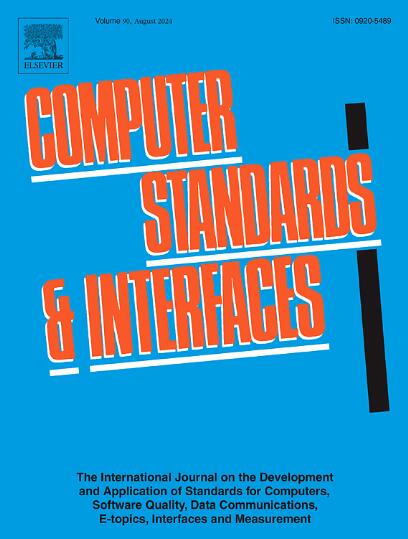RSH-BU: Revocable secret handshakes with backward unlinkability from VLR group signatures
IF 3.1
2区 计算机科学
Q1 COMPUTER SCIENCE, HARDWARE & ARCHITECTURE
引用次数: 0
Abstract
Secret handshake scheme is a bi-directional authentication method that enables two participants from the same organization to identify both sides in private. A new generic construction of secret handshakes is proposed in this paper, which is primarily derived from Verifier-Local Revocation Group Signature (VLR-GS). An instance of the secret handshake scheme, drawn from a short VLR-GS with backward unlinkability, is presented. Our scheme incorporates an efficient revocation mechanism that guarantees both traceability and unlinkability. Moreover, the past actions of revoked users remain confidential due to the backward unlinkability mechanism. We have also enhanced the communication protection between the Group Authority (GA) and its members to prevent malicious GA from forging group members. Compared to previous secret handshake schemes, our scheme significantly reduces both communication and computation overhead, making it particularly suitable for mobile environments. Our proposal’s security can be proven under the random oracle model, given the difficulty of Decision Linear (DLIN) and q-Strong Diffie–Hellman (q-SDH) problems.
RSH-BU:具有VLR组签名反向不可链接性的可撤销秘密握手
秘密握手方案是一种双向认证方法,它使来自同一组织的两个参与者能够在私底下识别双方。本文提出了一种新的通用秘密握手结构,该结构主要来源于验证者-本地撤销组签名(VLR-GS)。给出了一个基于后向不可链接的短VLR-GS保密握手方案的实例。我们的方案包含一个有效的撤销机制,保证可追溯性和不可链接性。此外,由于反向不可链接机制,被撤销用户过去的操作是保密的。我们还加强了Group Authority (GA)与其成员之间的通信保护,以防止恶意GA伪造组成员。与以前的秘密握手方案相比,我们的方案大大降低了通信和计算开销,使其特别适合移动环境。考虑到决策线性(DLIN)和q-Strong Diffie-Hellman (q-SDH)问题的难度,在随机oracle模型下证明了该方法的安全性。
本文章由计算机程序翻译,如有差异,请以英文原文为准。
求助全文
约1分钟内获得全文
求助全文
来源期刊

Computer Standards & Interfaces
工程技术-计算机:软件工程
CiteScore
11.90
自引率
16.00%
发文量
67
审稿时长
6 months
期刊介绍:
The quality of software, well-defined interfaces (hardware and software), the process of digitalisation, and accepted standards in these fields are essential for building and exploiting complex computing, communication, multimedia and measuring systems. Standards can simplify the design and construction of individual hardware and software components and help to ensure satisfactory interworking.
Computer Standards & Interfaces is an international journal dealing specifically with these topics.
The journal
• Provides information about activities and progress on the definition of computer standards, software quality, interfaces and methods, at national, European and international levels
• Publishes critical comments on standards and standards activities
• Disseminates user''s experiences and case studies in the application and exploitation of established or emerging standards, interfaces and methods
• Offers a forum for discussion on actual projects, standards, interfaces and methods by recognised experts
• Stimulates relevant research by providing a specialised refereed medium.
 求助内容:
求助内容: 应助结果提醒方式:
应助结果提醒方式:


